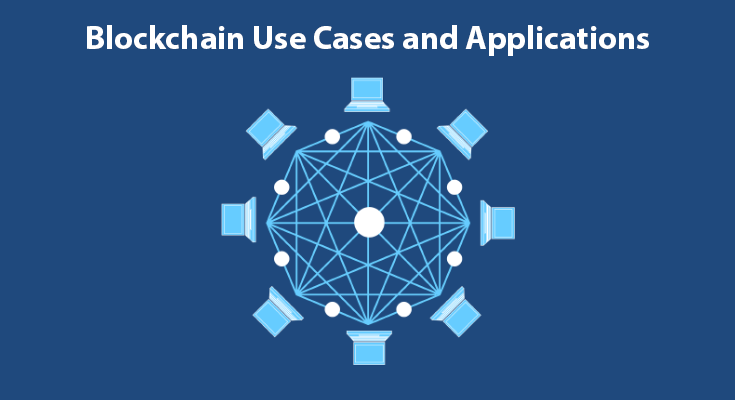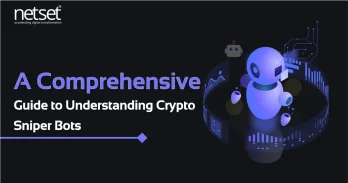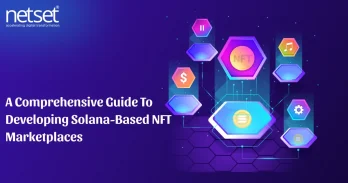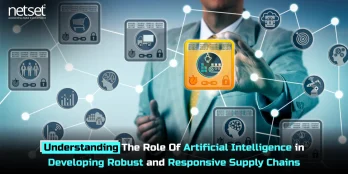“Blockchain is a database shared by all the actors or parties involved in the process where the main differential lies in its computer protocol that promotes and guarantees transparency, fairness, and veracity of the information.”
Blockchain left its past behind, years ago, which was limited to bitcoins and cryptocurrencies, and has moved on to impacting various sectors with its revolutionary power and potential.
As a leading and budding Blockchain Development Company, NetSet Software Solutions is contributing its bit to guide businesses to decentralize data across their domain, exploring the highest potential of Blockchain Technology. Addressing recurrent industry problems, NetSet has built customized industry-specific solutions for global trade, payments, real estate, supply chain management, and more.
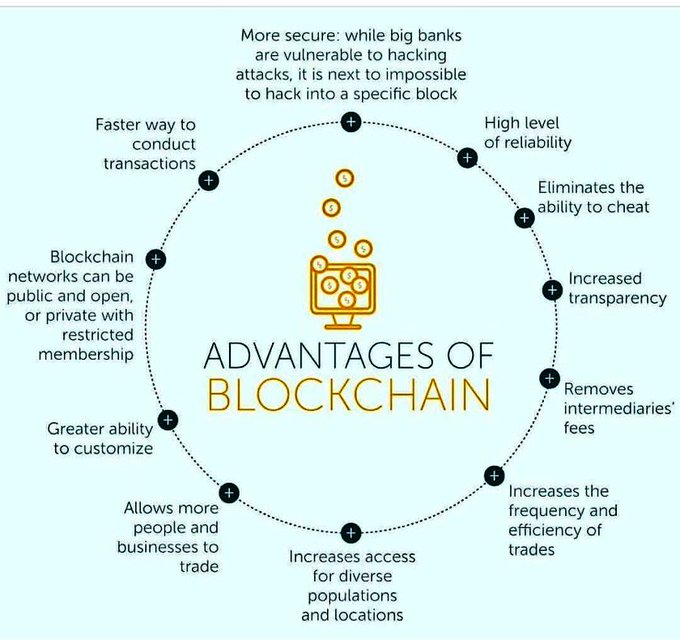
With blockchain developers working day and night, a wide range of blockchain use cases and applications can be witnessed around, and recognized beyond the financial realm. Before delving deep into the real-world applications and use cases, here is some crucial information about Blockchain to take into account:
-The record of transactions is unalterable
The data record cannot be modified or manipulated by a computer or person but can only be updated with new transactions.
-Updates must be approved
Before being registered in the blockchain, each transaction must be approved by the majority of the computers/parties involved which is powered by Hashing.
-Blockchain blocks are distributed
Each block is sent individually to all the interconnected computers in real-time.
-The registries are decentralized
Each blockchain registry has its replica of itself on all the respective computers, thus, if a record is updated on any of the computers, the same update is sent to the rest and modified.
-Blocks are highly encrypted
All the information that transits on the blockchain is protected by cryptography, each user is privileged to choose what information to keep public or private.
-Communication between computers is direct
There is no room for intermediaries on the blockchain platform, each party or computer can generate transactions directly to all others.
Real-World Blockchain Use Cases & Applications
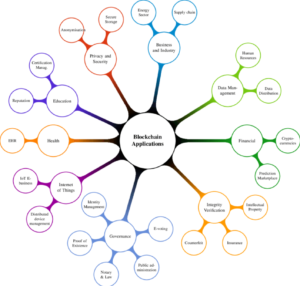
#Financial Transaction Processing
Blockchain offers various capabilities to alleviate the challenges faced in the banking and finance sector whether it is making cross-country/cross-border transactions or practicing trade finance or capital markets.

When the talk is about payment processing, the robust technology unlocks untapped economic opportunities that are more profitable, equitable, and secure. While executing transactions a decentralized server doesn’t involve intermediaries and involves parties that are a part of the network.
Visa, alone processing 138.3 billion transactions in 2019, is highly vulnerable to fraud and deceit which led it to launch a blockchain-based network (B2B Connect) for executing business transfers. The system enables near-real-time B2B transactions instantly whereas International transactions take five business days to be verified and processed.
Moreover, decentralized technologies built on the Ethereum blockchain, that is decentralized finance have emerged as the most active segment in the blockchain space. Decentralized Finance (DeFi), unlike the conventional financial system, runs on code within the decentralized infrastructure of the Ethereum blockchain.
‘DeFi’ enables crypto assets to be used without the fear of data breach or financial loss and adding to it, other decentralized exchanges, synthetic assets, flash loans, etc. contribute as novel applications that can only exist on the blockchain.
#Medical Data Management
The healthcare industry is an ever-expansive field of work that produces a hefty amount of data regularly, coming from the practice’s and patient’s personal and financial information.
Anthem medical data breach accounted for the leakage of around 80 million medical records as a result of notorious hacking. In 2019, data of 20 million records of Americans were exposed as a result of the data breach and hacking from the American Medical Collection Agency (AMCA).
Such scenarios raise huge concerns for healthcare data security and urge us to make the transition in the approach followed toward privacy and security of the healthcare segment.

Considering blockchain’s public ledger which is both transparent and anonymous where transactions can be recorded and displayed without exposing the identity of those conducting the transactions, is seen as a useful and worthy blockchain use case.
Canada’s University Healthcare Network in partnership with IBM launched a blockchain-based system that powers to control their operations that involve data (directly/indirectly) and allows any modifications to be made once the majority of the participants on the network approve it.
(Generally, patient data gets shared only after giving their consent.)
Furthermore, in the sufferings witnessed under COVID-19, a union of the overlords (IBM, Oracle, Microsoft, the Linux Foundation) formed a venture named Hacera that shared coronavirus cases on the global front. It utilized Hyperledger Fabric and IBM blockchain platforms to solicit information from medical institutes and facilities and streamlined it to identify infected people without unveiling their identity. (this allowed the non-revelation of data about infected people to be used for any purpose by third parties)
The healthcare software development powered by blockchain is directed to preserve patients’ privacy rights and orients to finally allow patients to own and manage their data.
#Supply Chain Management

Efficiency, accuracy, and collaboration form the center of the overall working of the supply chain. Establishments working around the globe work together to ship goods and commodities with the support of different IT systems deployed.
Using distinct software systems is accountable for an increase in delays, errors, and loss of coordination, and ultimately causes revenue leakage. This challenge is overseen by blockchain smart contracts which enable physical asset tracking.
Chronicled is a system that promotes trust and automation between companies and automates transactions between trading partners using MediLedger networks. With the assigned digital IDs companies can track their goods, and manage payments, transactions, and delivery schedules. Combined with shipping tracking, it plays a crucial role in verifying the authenticity of the delivered products too.
The automobile industry which has the most complex supply chain management system also applies blockchain functionality to streamline its operations. BMW, a renowned brand launched a project named PartChain to ensure high-quality data standards are met within their supply chain.
It enables them to trace components and verify data, offering sheer transparency and control over their system.
#Real Estate Investment Management
Blockchain leverages the real estate sector by utilizing digital assets and has enhanced the underlying operations within this business sphere, thus reducing costs, expanding transparency, and minimizing data silos.
Blockchain adds flexibility to smart property management where property management firms can eliminate inefficiencies in their global portfolio by secure data sharing and streamlined rental collections and payments. The data is highly secured and encrypted and is substantially rich which drives better decision-making.
Furthermore, the construction projects involve paperwork and obscure communication which eats up a sufficient part of the budget and consumes time. As reported by Aon Risk Solutions, 95% of the construction data is lost on handover to the first owner which makes the holistic process insufficient.
Blockchain capabilities sweep these flaws by where a construction firm Briq uses the technology to its advantage by digitizing the construction data by creating a unique data repository that favors transparency in the documentation of the entire process. The immutable recording of transactions orchestrates the construction processes digitally and acts as a powerful risk management tool.
Blockchain offers a secure and immutable digital registry, complete with document authentication and transaction transparency.
Final Thoughts
The technology’s transformative power is indisputable. However, many still don’t understand its inner workings. The opportunity here is not to transform a few processes to make them more efficient but to change the approach to business processes as a whole.
Here at NetSet, we believe that these promising blockchain applications will start to have a global impact when more companies will make the benefits of blockchain more apparent. So why not collaborate with the Right Partner to take advantage of Blockchain’s Next Step in Evolution?

